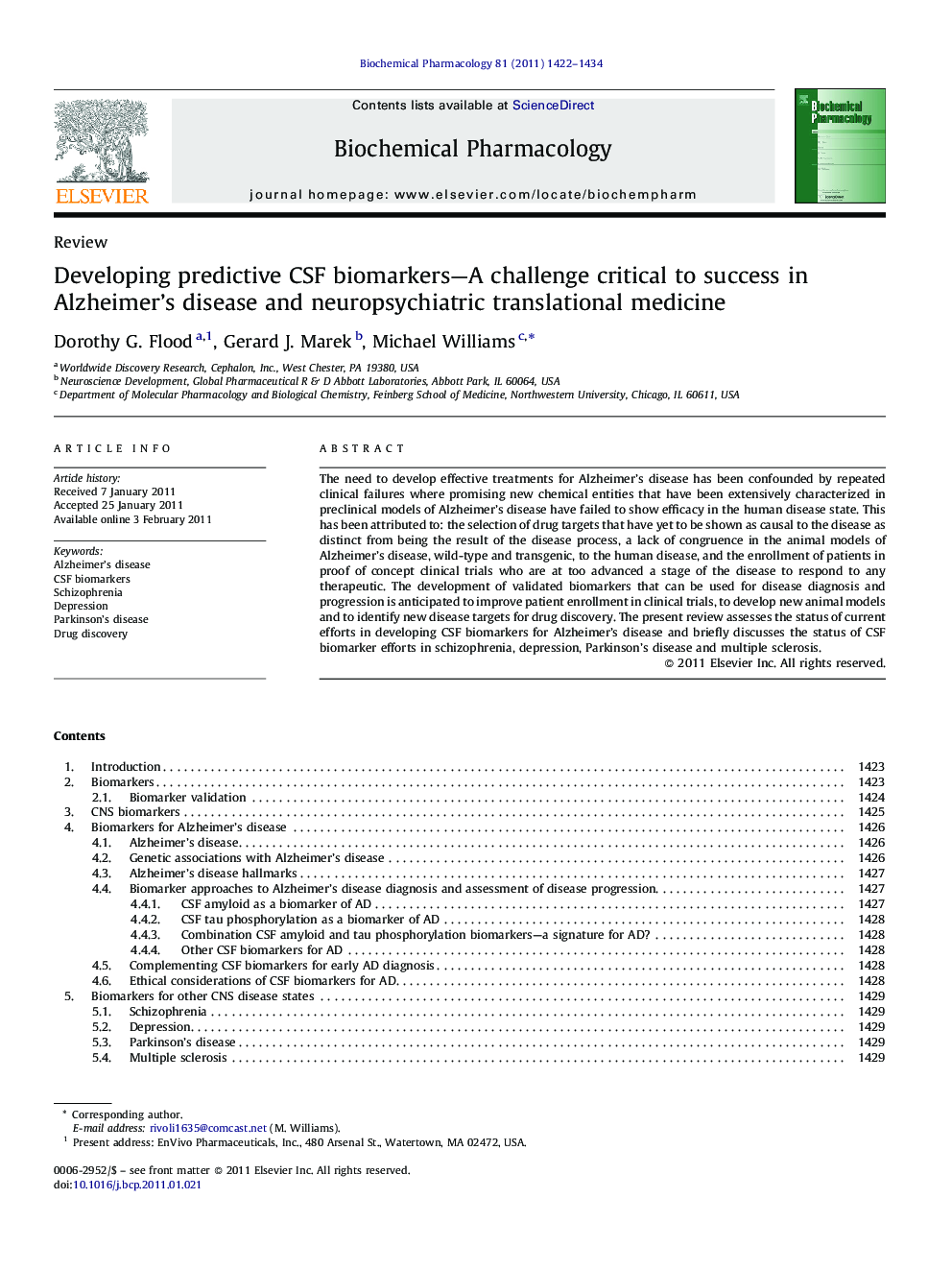| Article ID | Journal | Published Year | Pages | File Type |
|---|---|---|---|---|
| 2513369 | Biochemical Pharmacology | 2011 | 13 Pages |
The need to develop effective treatments for Alzheimer's disease has been confounded by repeated clinical failures where promising new chemical entities that have been extensively characterized in preclinical models of Alzheimer's disease have failed to show efficacy in the human disease state. This has been attributed to: the selection of drug targets that have yet to be shown as causal to the disease as distinct from being the result of the disease process, a lack of congruence in the animal models of Alzheimer's disease, wild-type and transgenic, to the human disease, and the enrollment of patients in proof of concept clinical trials who are at too advanced a stage of the disease to respond to any therapeutic. The development of validated biomarkers that can be used for disease diagnosis and progression is anticipated to improve patient enrollment in clinical trials, to develop new animal models and to identify new disease targets for drug discovery. The present review assesses the status of current efforts in developing CSF biomarkers for Alzheimer's disease and briefly discusses the status of CSF biomarker efforts in schizophrenia, depression, Parkinson's disease and multiple sclerosis.
Graphical abstractCartoon of diagnostic data points.Figure optionsDownload full-size imageDownload as PowerPoint slide
